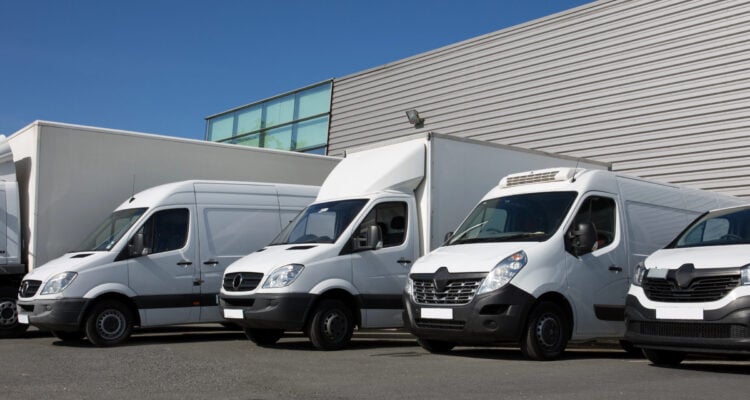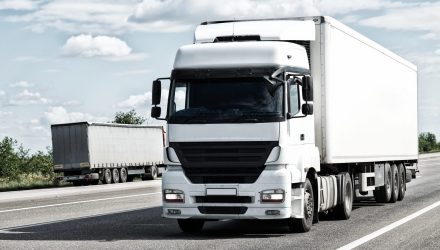The Government has confirmed it will legislate to make it easier for fleets to operate zero-emission vans weighing between 3.5 and 4.25 tonnes. The commitment follows a consultation launched in December 2024 examining roadworthiness testing, drivers’ hours, tachograph requirements and speed limiter rules for heavier electric vans.
Fleet bodies have welcomed the proposals, which aim to remove long-standing barriers that have slowed electric van uptake. The changes would bring operational rules for heavier electric vans into line with diesel and petrol models under 3.5 tonnes, supporting operators as they transition to cleaner vehicles.
Toby Poston, chief executive of the British Vehicle Rental and Leasing Association (BVRLA), praised the move, saying policymakers had “listened to the fleet sector”. He added: “This is a great result for the van sector and delivers something the Zero Emission Van Plan has pushed up the agenda. We now need to see swift legislation to remove these restrictive regulations.”
Paul Hollick, chair of the Association of Fleet Professionals (AFP), echoed the sentiment, noting that the AFP and other industry groups had pushed for change for some time. “Electric van adoption by fleets is proving much slower than anyone would like,” he said. “Issues around 4.25-tonne vans have been unnecessary obstacles. We’d like to see these reforms made law as soon as possible.”
AA fleet director Duncan Webb also welcomed the direction of travel but stressed the need for urgency. “EV van adoption at pace in this sector can only be achieved if legislation is forthcoming quickly,” he warned. “Until then, there remains a fundamental challenge that fleets will struggle to resolve.”
MOT Reform for Heavier Electric Vans
The Department for Transport (DfT) reported clear support for changes to roadworthiness testing. Many respondents said the existing testing requirements for 3.5 to 4.25-tonne zero-emission vans present a significant operational burden and may discourage adoption.
Most agreed that moving these vehicles into the Class 7 MOT system—rather than using heavier-vehicle test procedures—would simplify compliance. However, some expressed concern that reduced testing frequency, combined with high vehicle utilisation, could pose road safety risks.
In response, the DfT highlighted evidence from operators with mixed fleets showing no increase in collision rates among heavier electric vans compared with their diesel equivalents. Additional built-in safety features and the fact that these vans are mostly operated by professional fleets were also noted.
The Government therefore intends to legislate to bring 3.5 to 4.25-tonne electric vans into the Class 7 MOT regime, with first tests due three years after registration and annually thereafter. The DfT will conduct a post-implementation review, examining collision rates, MOT failure data and roadside prohibition figures to assess whether the changes impact road safety. Future amendments or even revocation of the legislation would remain possible should evidence justify it.
Tachograph and Drivers’ Hours Reform
The consultation also examined whether these heavier electric vans should continue to fall under assimilated (EU-derived) drivers’ hours and tachograph rules.
Currently, they are subject to those rules unless operating within a 100 km radius of their base and powered by zero-emission or gas fuel, in which case domestic GB rules apply.
Most respondents supported moving all 3.5 to 4.25-tonne electric vans into scope of the GB drivers’ hours rules. Operators argued that this would simplify operations, provide consistency with diesel van rules, and remove unnecessary administrative complexity.
Concerns were raised that drivers might work excessive hours under the more flexible GB system, but the DfT noted that the assimilated rules actually permit drivers to work longer—up to 13 hours, compared with 11 hours under GB legislation. No data was provided to support fears of overwork.
Given the potential benefits, the DfT will now explore legislation to fully transition these vans to GB drivers’ hours rules. Any changes will require additional regulatory amendments.
Speed Limiter Requirements Under Review
Respondents were also asked whether the current 56 mph mandatory speed limiter for 3.5 to 4.25-tonne zero-emission vans should be removed.
While some operators said the limit and associated maintenance requirements hindered electric van adoption, the majority felt the rule should be retained and did not constitute a substantial barrier.
The DfT noted that removing the limiter could affect road safety, particularly on motorways, and could also create regulatory inconsistencies if other reforms go ahead. Before making any changes, it said a further targeted consultation—containing specific proposals—would be required to gather more detailed safety and operational evidence.
Wider Licensing Changes Already in Force
This latest announcement follows secondary legislation introduced earlier in 2025 enabling Category B licence holders to drive zero-emission vehicles up to 4.25 tonnes. This effectively extends the long-standing 3.5-tonne limit for petrol and diesel vehicles, recognising the extra weight of electric batteries.
The rule change applies across vans, minibuses, SUVs, trucks and any vehicle normally capped at 3.5 tonnes when powered by an internal combustion engine. The Government also removed the requirement for an additional five hours’ training, with the updated law taking effect in June.
A Step Forward for Zero-Emission Van Adoption
Industry leaders say these reforms could make a meaningful difference to fleet electrification. Regulatory inconsistencies around 4.25-tonne vans have long been cited as a barrier to adoption, creating confusion and operational difficulty for fleets looking to switch to zero-emission models.
Toby Poston said the latest progress “underlines what can be achieved when an industry comes together with a shared voice and Government representatives are ready to listen”.
He added: “Operators of large vans are being given the chance to access cleaner, greener models, no longer hamstrung by illogical operational loopholes.”
As the legislation moves forward, the fleet sector is urging ministers to maintain momentum to support faster, smoother adoption of electric vans across the UK’s logistics and service industries.






